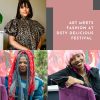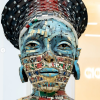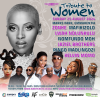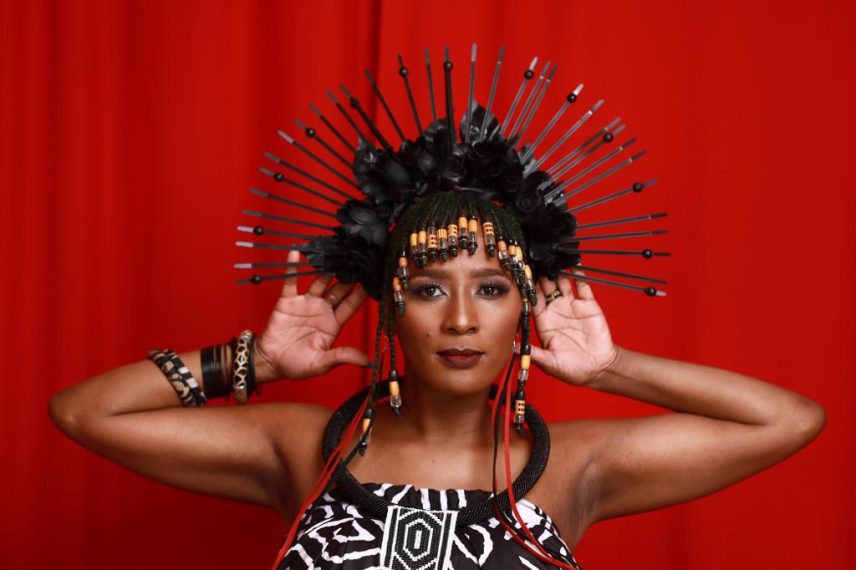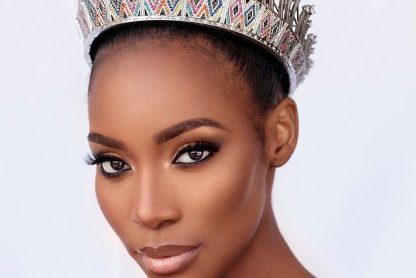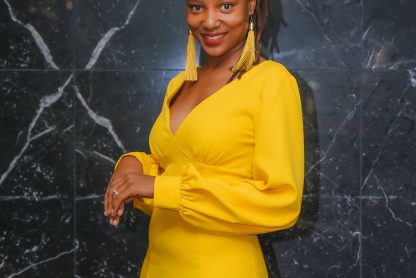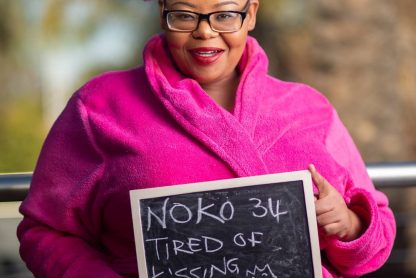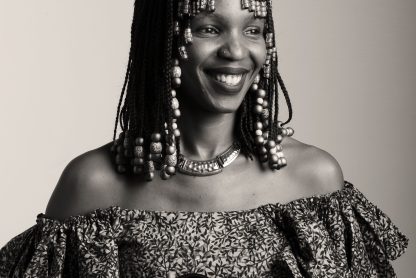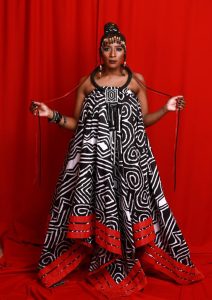 The multi-award-winning creative director, playwright and performer is curating a local first with Herstory International Theatre Festival
The multi-award-winning creative director, playwright and performer is curating a local first with Herstory International Theatre Festival
August is a special month in South Africa as it marks women. As such, we couldn’t find a better time to celebrate and share the success journey of a renowned storyteller, Napo Masheane, than now. She tells us more about her career in the arts, the theatre festival she’s curating and her success tips.
What has attracted you to the arts, and why did you want to pursue a career in it?
I was born in the very heart of Soweto and grew up in Qwaqwa in the Free State. Later on, I moved into the hustle and bustle of Johannesburg, where I sculpted and moulded my artistic interest. But all this was found in the fabric of my Sesotho culture and in a family where folklores, fairy tales and fables were shared over lit candles while idioms and riddles were infused in our daily traditional games. This hae-lapeng (home) ambience, full of Basotho traditions, cemented the tranquillity that hung on the Bantustans that Qwaqwa was. The smell, taste, fabric and texture of my Sesotho language and culture meant I was growing up not only covered by the shadows of hills and cliffs, where I could walk along footprints framed by mud and dust, with birds nestling on trees, or cows grassing on intriguing grasslands but that I was being schooled to know, value and hold sacred stories that birthed us. The only difference between me and my people is that I breathe life into my culture by making a living out of it as theatre.
You have created stage plays, such as ‘My Bum Is Genetic Deal With It’, ‘The Fat Black Women Sing’ and ‘KHWEZI… Say My Name’. These are narratives that black women can relate to, what has inspired your work over the years?
Black women in South Africa have mastered collecting bricks that build sisterhoods of friendship on the foundation of their trauma. We become sister-friends with each other because we have similar wounds and scars. This is the premise of my obsession with black women’s stories. So when I hear, see or read about their lives, I find parts of myself in their narratives. Hence, my poems and plays are always centred on difficult subjects from a feminine voice, and with South Africa being declared ‘the kingdom of femicide’ there was no room small enough to stop me from penning down these choreo-plays as a stand against gender-based violence beyond the #hashtag … or play-riot in reclaiming our bodies and beauty.
You have become the first black woman to produce, write and direct a play: ‘A New Song’ at the Market Theatre’s main stage, commendable as this achievement is, does this mean the arts industry is facing a certain level of glass ceiling that women are struggling to break to reach the top?
Eish! I don’t know hle! I mean I don’t think people who make history wake up thinking of being revolutionaries or heroes or controversial or activists. Like anyone else who was and is always provoked by silence or spaces that don’t have black women’s voices, I understood earlier on that my role or calling would be to dismantle, then create, pave, and level the field so that other black girls and women artists don’t have to fight or eventually push down doors and barriers. It will be unimaginable for me to occupy and hold the space as if I am the only voice that matters within the theatre landscape.
You were also a deputy artistic director at The South African State Theatre, share with us what your role entailed.
My role was to give artistic support to the artistic director, while also leading, hearing and liaising with other departments within the theatre. More so to also identify new networks and assist with attracting new sponsors/funders and collaborators. I also was the first woman curator of Vavasati International Women Festival, which became a strong base in terms of curating and directing an all-female festival.
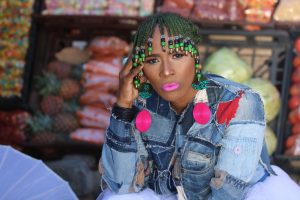
What is your definition of success and do you feel you have achieved it?
I have a few dreams, but the ones that allow me to live out of my nightmares are those that allow me to tell stories of black women. As I said, I have an obsession with black women’s narratives. I am super driven by their untold narratives, their gossip principle fascinates me… you know a story that finds it hard to leave our kitchen tables when we plait our hair, cook, bake, or make umqombothi (traditional beer).
Is there a stage you would like to perform at one day and why?
I honestly would like to see my 10 plays travelling the world and being presented on various world stages and generate sustainable income and limitless work for me. But personally, I would say New York, Broadway and the UK, Westbank.
You will curate Herstory International Theatre Festival this month, share with us the inspiration behind this initiative and who would you like to see attend this event?
South Africa and the world had gone on a total lockdown, which meant that theatres, art centres and festivals globally had to put a halt on physical events. This pandemic also resulted in funding cuts, a lack of income from regular investors and donors, as well as restrictions on travel and collaborations.
Like everyone at first, I got hit hard as I lost 99% of secured work and projects. This included all my overseas artistic trips. But with several virtual theatre festivals (both nationally and internationally), one started to be inspired to think out of the box, to re-channel and re-structure how and what new theatre could be. Then some of my friends across the world called me and proposed that I create a platform for womxn, by womxn, with womxn artists and creatives in it. So I tapped into my artistic background and contacted everyone on my database who I had worked or crossed paths with in the last 27 years. Within three days, a pull of sister friends responded to say whatever I am creating they will be part of it. This was how HerStory International Theatre Festival was born.
What will guests expect and take from the festival?
HerStory International Theatre Festival is the first of its kind in South Africa… let alone in Soweto, at the Soweto Theatre, which is also celebrating 10 years. So, this is going to be a melting pot of an artistic curation that is going to have a series (this might be a hybrid ) of dialogues, drama, poetry, comedy, music, dance and master classes – giving audiences a window into what womxn artists and creatives across the world are doing, making, forming and creating.
Over seven days, there will be a prolific calibre of 50 well-celebrated international artists/creatives from 17 countries, under the coordination of 30 South African core artistic teams from Village Pro. This will also include over 20 collaborating partners, festival coordinators, institutions, and production companies. This means HerStory International Theatre Festival will have a minimum of 250 womxn artists/creatives from South Africa, the continent, the diaspora and the world.
What does Women’s Month mean to you, especially with the challenges women face in South Africa, is there a need to still commemorate it and what more can be done to help address these challenges during this month?
I want my words and work to stop cowering when they should stand tall even when they make others uncomfortable. As black women storytellers and theatre makers, we should never apologise for claiming spaces, creating platforms, speaking out, thinking back or talking back against any form of injustice against us. Our voices, bodies, gender, sexuality, struggles and our very existence should exist. HerStory by all means has to be re-birthed, re-lived, re-told, and re-imagined into HiStory.
Lastly, what would you like to be remembered for?
Theatre is a sacred art form. Most of it is based on human spiritual drama. There is always a performer and the spectator, whether around the fire, inside the black box or over a digital media platform. At the end of the day, stories need to be told. Someone has to hold the mirror back to society. Some of us have to be that cautious-drunk-aunt who has to call everyone and everything out loud for someone’s story to be seen and heard. This for me is what this pandemic is forcing us to remember… that when all is said and done our creativity is all that we have and all we will be left with against all odds.
Catch the theatre festival at the Soweto Theatre from 1 to 7 August.
To buy tickets and for more information, visit: Herstory International Theatre Festival
Images: Supplied.


